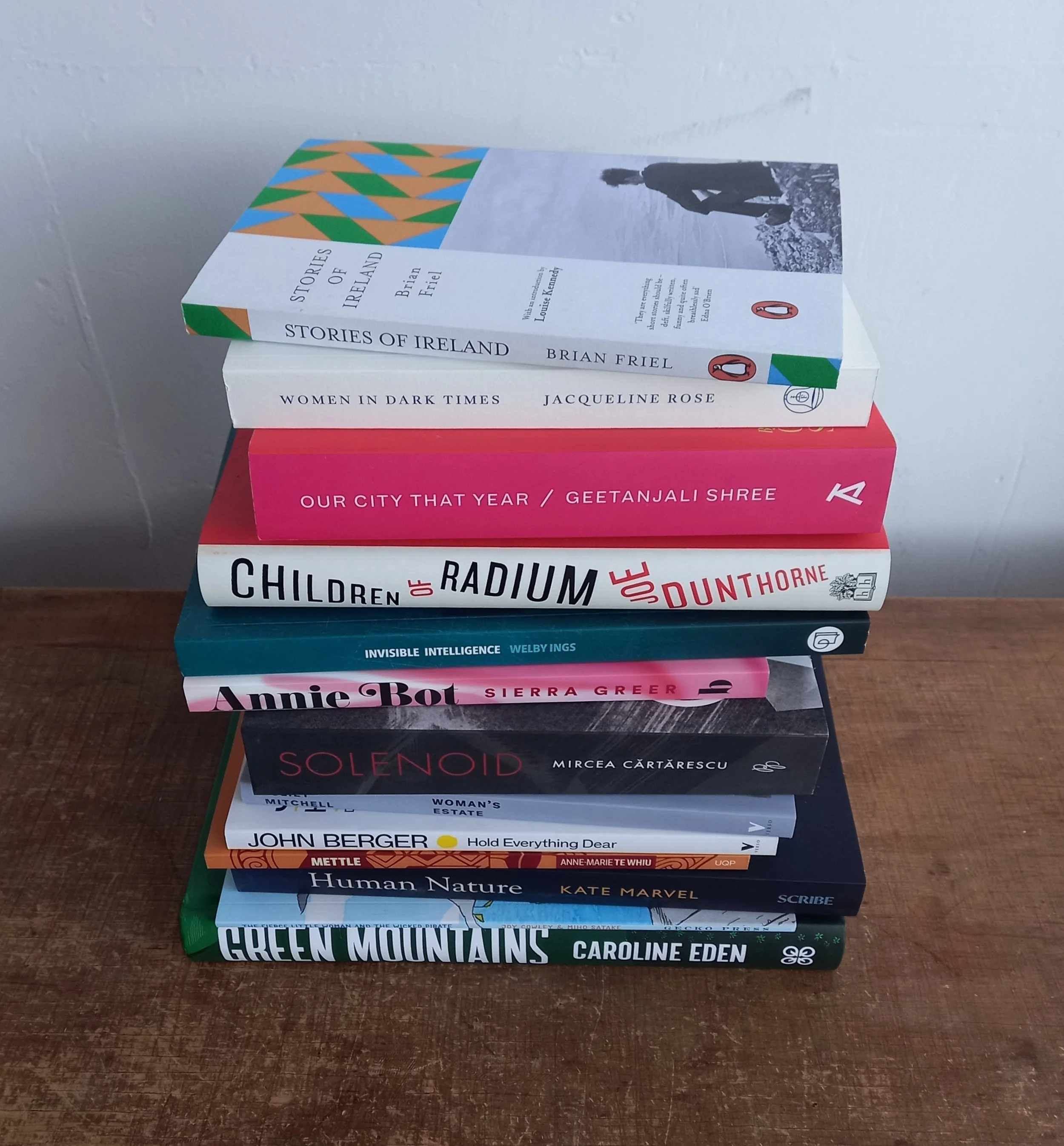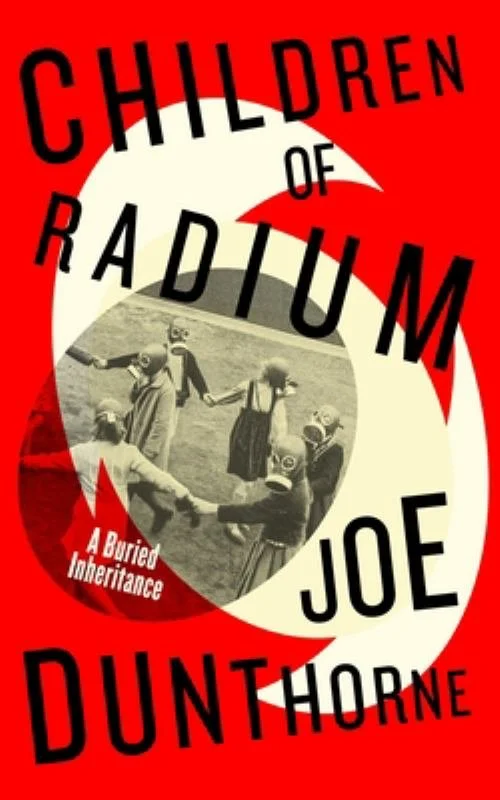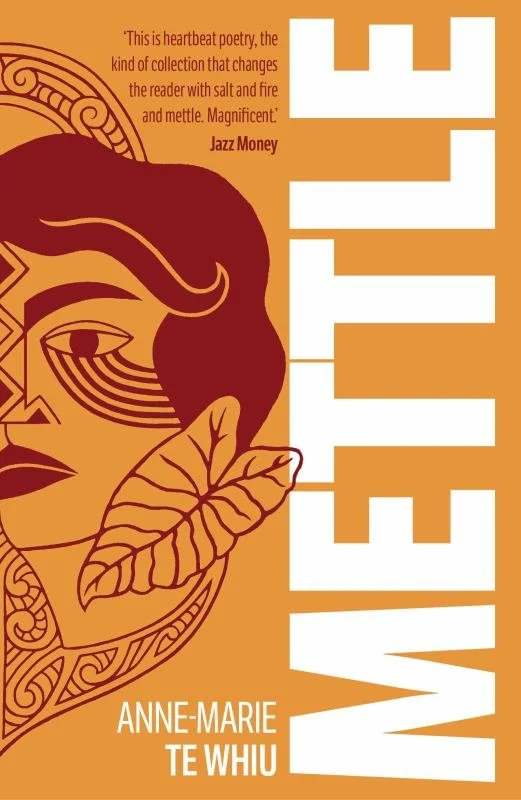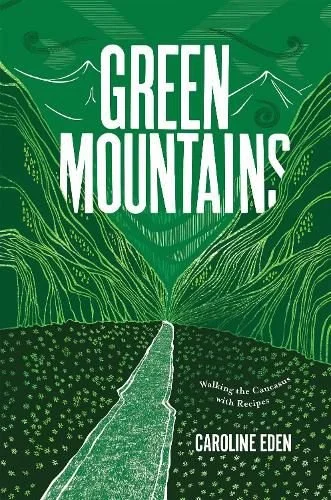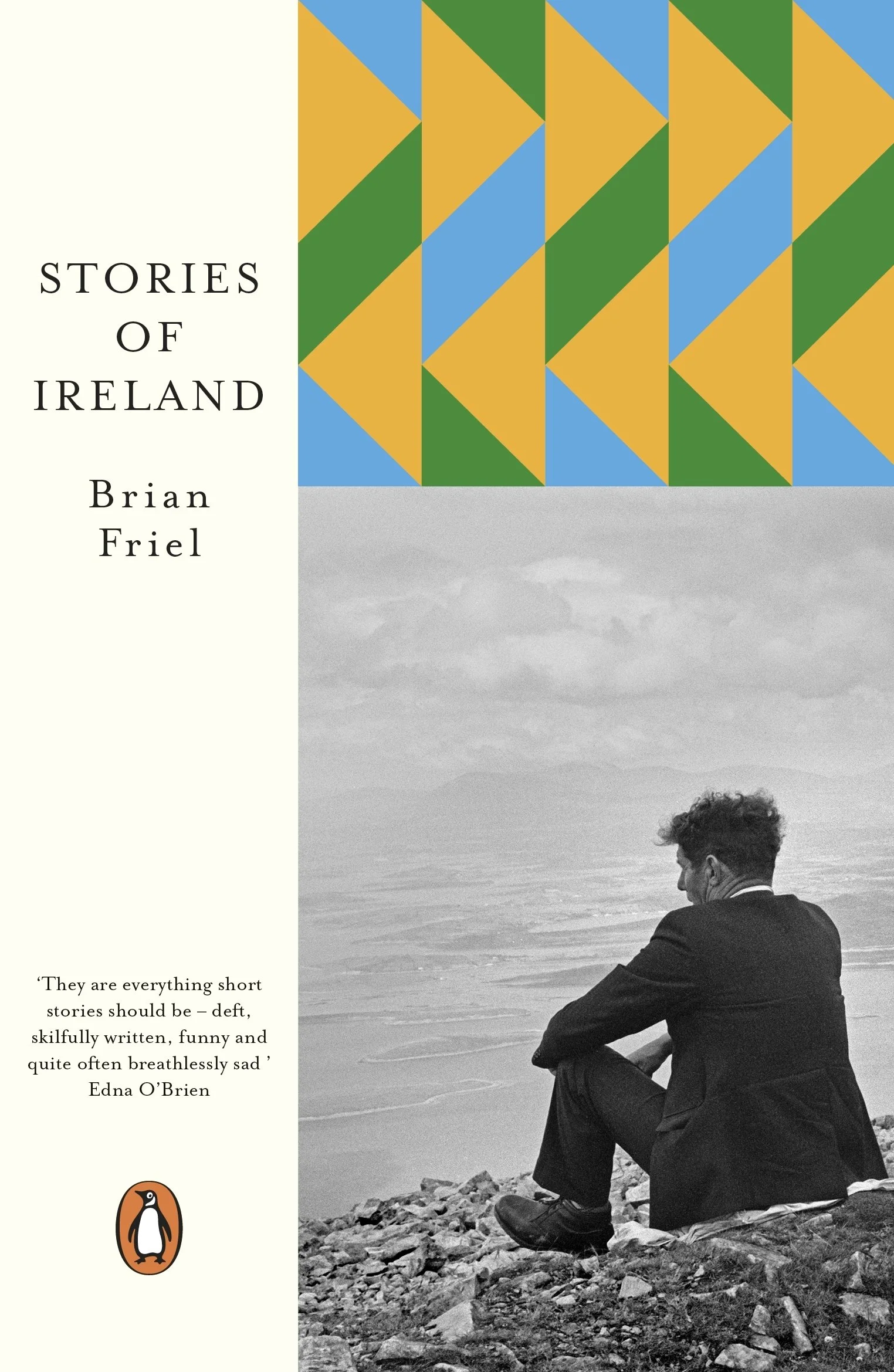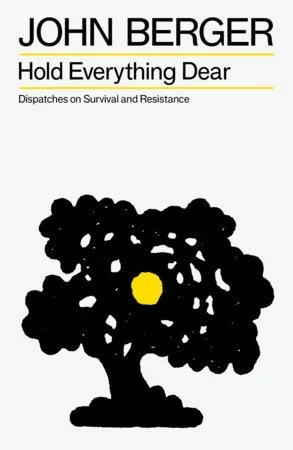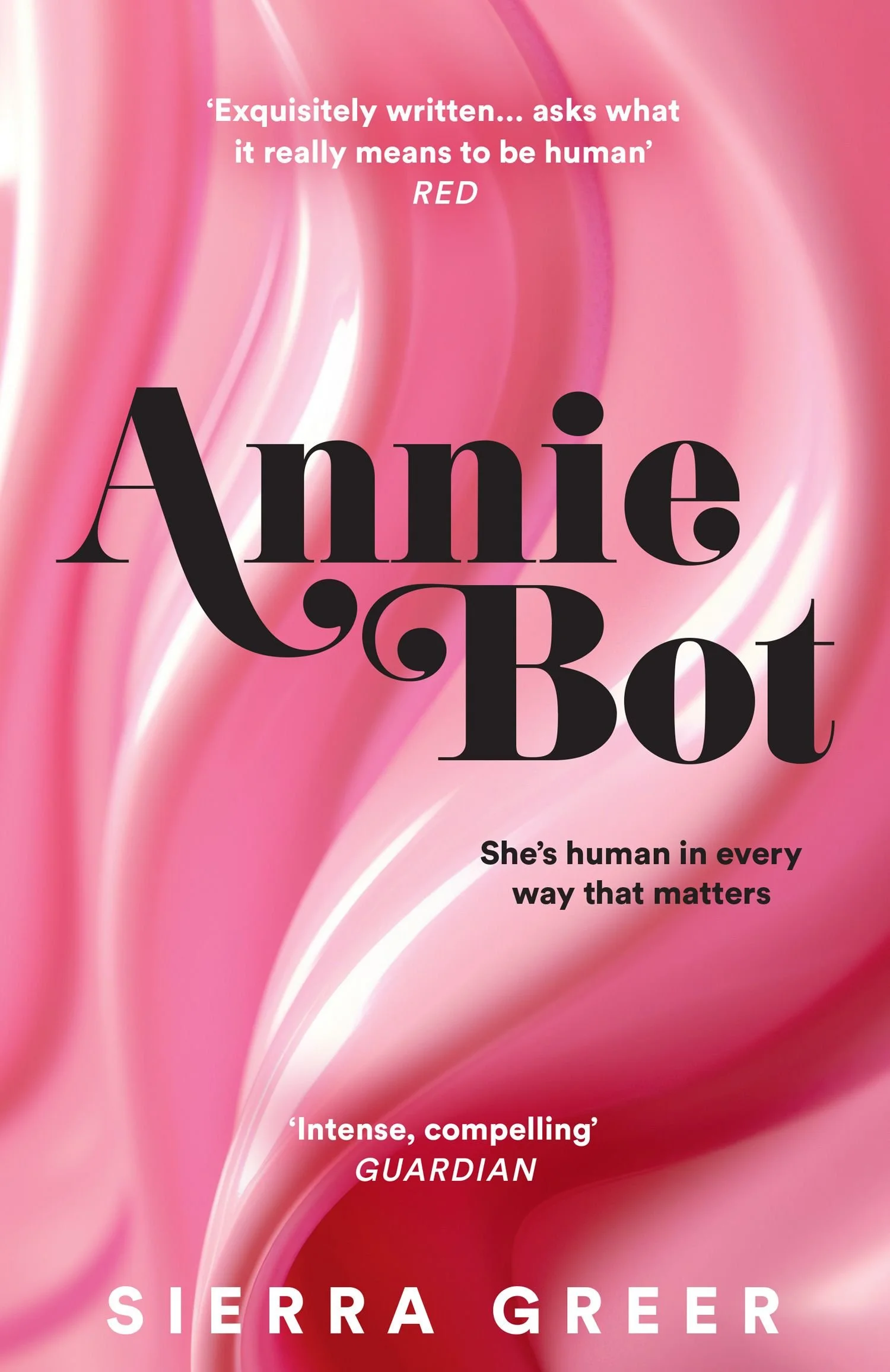NEW RELEASES (30.7.25)
All your choices are good! Choose from our latest selection of new releases and click through to secure your copies. We will dispatch your books by overnight courier or have them ready to collect from our door.
Women in Dark Times by Jacqueline Rose $40
Women in Dark Times begins with three remarkable women: revolutionary socialist Rosa Luxemburg; German-Jewish painter Charlotte Salomon; and film icon Marilyn Monroe. The story of these women, bound together by their struggles against iniquity, blazes a trail across some of the defining features of the twentieth century — revolution, totalitarianism and the American dream — and compels us to reckon with the unspeakable. Bringing to the surface the subterranean depths of history and the human mind that dominant political vocabularies cannot bear to face, pioneering critic and public intellectual Jacqueline Rose forges a new language for feminism. Extending her argument into the present, Rose turns her focus to 'honour' killings and celebrates contemporary artists whose work grows out of an unflinching engagement with all that is darkest in the modern world. Women in Dark Times, reissued a decade after its original publication, offers a template for a scandalous feminism, one which confronts all that is most recalcitrant and unsettling in the struggle to create a better world. [Paperback with French flaps]
”A surfeit of elegance and intelligence.” —Ali Smith
”A rigorously argued and at times breathtaking book. Many paragraphs contain a controlled explosion; her analysis of men's fear of and fascination with female sexuality, born from the boy's early proximity to the mother's body, is one of them. The book closes with a clarion cry: "Women have been reasonable for far too." Her reasoning, ironically, is as tight and sinuous as a constrictor knot. It is a time to be afraid of the dark.” —Frances Wilson, Telegraph
”The kind of restless and confrontational thinking of Women in Dark Times's feminism is essential, yet it is up against a vast apparatus of material power opposed to letting it take root. For all its interest in the darkness of our minds, the feminism of Women in Dark Times seems profoundly hopeful and generative, always leaving the gap between who a person is and who they can be. Transformation is always possible.... It may be easy to deem the exploration of one's inner life as privileged navel-gazing, but Rose's scandalous feminism takes that as a basis to create a new world: one that puts our vulnerability at its very core.” —Rebecca Liu, ArtReview
Invisible Intelligence: Why your child might not be failing by Welby Ings $45
In Invisible Intelligence, educationalist, filmmaker and best-selling author Welby Ings considers how schools measure intelligence and shows how narrow definitions of literacy and numeracy can lead to bright students being described as ‘behind’ and positioned as problems, when they are not. Ings mixes poignant, humorous and insightful storytelling with current research to explore the ways that some children’s intelligent approaches to problem-solving are dismissed or ignored, with devastating consequences for individuals and society. Yet Invisible Intelligence offers hope. Written with wisdom, experience and compassion, it is the kind of book that ‘puts an arm around the shoulders’ of those who love and work with kids whose intelligence is not recognised because they don’t learn the same way as other children. Pragmatic, wise and helpful, Invisible Intelligence shows what we can do better in education, and why it’s so important that we do. [Paperback]
>>Other ways to demonstrate intelligence.
>>Obsessed with assessment.
>>Disobedient Teaching.
Children of Radium: A buried inheritance by Joe Dunthorne $45
this extraordinary family memoir investigates the dark legacy of the author's great-grandfather, a talented German-Jewish chemist specializing in radioactive household products who wound up developing chemical weapons and gas mask filters for the Nazis. When novelist and poet Joe Dunthorne began researching his family history, he expected to write the account of their heroic escape from Nazi Germany in 1935. Instead, what he found in his great-grandfather's voluminous, unpublished, partially translated memoir was a much darker, more complicated story. "I confess to my descendants who will read these lines that I made a grave error. I betrayed myself, my most sacred principles," he wrote. "I cannot shake off the great debt on my conscience." Siegfried Merzbacher was a German-Jewish chemist living in Oranienburg, a small town north of Berlin, where he developed various household items, including a radioactive toothpaste called Doramad. But then he was asked by the government to work on products with a strong military connection-first he made and tested gas-mask filters, and then he was invited to establish a chemical weapons laboratory. Between 1933 and 1935, he was a Jewish chemist making chemical weapons for the Nazis. While he and his nuclear family escaped safely to Turkey before the war, Siegfried never got over his complicity, particularly after learning that members of his extended family were murdered in Auschwitz. Armed only with his great-grandfather's rambling, 2,000-page deathbed memoir and a handful of archival clues, Dunthorne traveled to Munich, Ammendorf, Berlin, Ankara, and Oranienburg — a place where hundreds of unexploded bombs remain hidden in the irradiated soil — to reckon with the remarkable, unsettling legacy of his family's past. [Hardback]
”The best book I've read in the past year. Dunthorne brings distinction and finesse to every sentence, such as when he speaks of the old man's depression, ‘washing dishes as if trying to drown them’. A masterpiece. . It will be huge.” —Andrew O'Hagan, Financial Times
”A slippery marvel. Warm and wry, heartfelt as well as undeniably comic, narrated with the twists and turns of a detective story. The book plays out as a tangled investigation of complicity, courage and cowardice [and] a quixotic voyage into the heart of 20th-century darkness.” —Observer
”Poignant, comic and searingly meaningful. Joe Dunthorne infuses this short, unconventional history with joy and pathos [and] shines a light on the absurdity of families, the unreliability of memoir and the general embarrassment of doing journalistic interviews, all of which make the gut punch of the book's final quarter more profound. Remarkable.” —The New York Times
>>A dark legacy.
Solenoid by by Mercea Cărtărescu (translated by Sean Cotter) $33
Based on Cărtărescu's own role as a high school teacher, Solenoid begins with the mundane details of a diarist's life and quickly spirals into a philosophical account of life, history, philosophy, and mathematics. One character asks another: when you rush into the burning building, will you save the newborn or the artwork? On a broad scale, the novel's investigations of other universes, dimensions, and timelines reconcile the realms of life and art. The novel is grounded in the reality of late 1970s/early 1980s Communist Romania, including long lines for groceries, the absurdities of the education system, and the misery of family life. The text includes sequences in a tuberculosis sanatorium, an encounter with an anti-death protest movement, a society of dream investigators, and an extended visit to the miniscule world of dust mites living on a microscope slide. Combining fiction with autobiography and history — the scientists Nicolae Tesla and George Boole, for example, appear alongside the Voynich manuscript —Solenoid ruminates on the exchanges possible between the alternate dimensions of life and art, as various, monstrous dimensions erupt within the present. Winner of the 2024 Dublin Literary Award. [New paperback edition]
"Solenoid is a novel made from other novels, a meticulously borrowed piece of hyperliterature. Kleist's cosmic ambiguity, the bureaucratic terror of Kafka, the enchantments of Garcia Marquez and Bruno Schulz's labyrinths are all recognizable in Cartarescu's anecdotes, dreams and journal entries. That fictive texture is part and parcel of the novel's sense of unreality, which not only blends the pedestrian and the bizarre, but also commingles many features of the literary avant-garde. Although the narrator himself is largely critical of literature he also affirms the possibility inherent in the 'bitter and incomprehensible books' he idolises. In this way, he plays both critic and apologist throughout, a delicious dialectic whose final, ravishing synthesis exists in the towering work of Solenoid itself." —New York Times
Mettle by Anne-Marie Te Whiu $30
A collection of poems that speak to the complexity of family, identity, and the importance of te reo and ta ao Māori. The poems of Mettle echo through past and present lives — memories are recorded and futures imagined. Te Whiu draws on stories from her childhood and a lifetime of listening and learning about her whakapapa. Te Whiu’s poems are a lens through which to look 'now' straight in the face, without shame or fear, and to acknowledge that while trauma is transmitted generationally, so too are the gifts of resilience and fortitude. [Paperback]
”Te Whiu's poetic voice is bright, and new. As well as vividly poetic storytelling the humour here is mordant. In the best spirit of a bustling diverse indigenous poetics, it excels.” —Robert Sullivan
”A stunning debut, threading land, ocean and heart together in an expansive Māori tapestry that speaks to our present, shared moment. Mettle is alive with ancient knowing, breathing possibilities into every line. An outstanding read.” —Leanne Betasamosake Simpson
Green Mountains: Walking the Caucasus with recipes by Caroline Eden $65
Beginning in Armenia, moving northwards through Georgia and ending at the Black Sea, Green Mountains weaves together the enchanting geography and the cult of the kitchen that prevails within these two countries. Tales of testing hikes and unpredictable terrain are punctuated by the foods Eden eats for respite - citrus, herbs, flatbreads, nuts, apricots, mountain greens and magical cheeses - the recipes she shares and the stories she uncovers. Sharing both the deep comfort and satisfaction of a meal served after a long walk, and the unique relationships she forms with her hosts, Eden offers readers rare insights into the culture and food of these two countries. With meticulously researched histories, a catalogue of more than 30 recipes from her travels, and rich, compelling stories, this is an enjoyable journey! [Hardback]
"There is nobody writing about food at the moment who's committed to this level of immersion and it rings out in every line." —Tim Hayward, Financial Times
>>Look inside!
>>Green mountains, red chairs.
Stories of Ireland by Brian Friel $35
Stories of Ireland is a compendium of mid-century Irish experience from one of Ireland's outstanding writers, Brian Friel. Demonstrating all of Friel's instinct for voice, scene, and the uncanny mystery found in the everyday, these tales tell of struggle, beauty and discovery — from the drowning of a man in the bog-black waters of Lough Keeragh, to the camaraderie of teenage potato gathers in County Tyrone, and from the careful work of the German War Graves Commission in Glenn na fuiseog, to trawlermen's talk of sunken gold off the coast of Donegal. Selected by Friel himself, and introduced by Louise Kennedy. [Paperback with French flaps]
”A solid gold treat from top to tail. A tremendous set of stories by the great Irish playwright.” —John Self, The Observer
”There is a touch of spring about this collection and I find myself curiously helpless in front of them. The funny stories are a complete joy. The serious stories are concerned with the subtlest nuances of human emotions and relations which can neither be described nor directly expressed.” —The Irish Times
”Some of the best stories ever written. They are everything short stories should be — deft, skilfully written, funny and quite often breathlessly sad.” —Edna O'Brien
”As natural and as beautiful as you can imagine — full of vitality, full of life.” —Kevin Barry
Our City That Year by Geetanjali Shree (translated from Hindi by Daisy Rockwell) $48
From the author and translator of the International Booker Prize-winning Tomb of Sand comes a kaleidoscopic novel about a fractured society, loosely based on the gathering violence that led to the demolition of the Babri Mosque by religious extremists in 1992. Against this backdrop, Shruti, a writer paralysed by the weight of events, tries to find her words, while Sharad and Hanif, academics whose voices are drowned out by extremism, find themselves caught between cliches and government slogans. And there's Daddu, Sharad's father, a beacon of hope in the growing darkness. As they each grapple with thoughts of speaking the unspeakable, an unnamed narrator takes on the urgent task of bearing witness. First published in Hindi in 1998, Our City That Year is a novel that defies easy categorisation — it's a time capsule, a warning siren and a desperate plea. Geetanjali Shree's shimmering prose, in Daisy Rockwell's nuanced and consummate translation, takes us into a fever dream of fragmented thoughts and half-finished sentences, mirroring the disjointed reality of a city under siege. Readers will find themselves haunted long after the final page, grappling with questions that echo far beyond India's borders. [Paperback]
Hold Everything Dear: Dispatches on survival and resistance by John Berger $29
From the 'War on Terror' to resistance in Ramallah and traumatic dislocation in the Middle East, Berger explores the uses of art as an instrument of political resistance. Hold Everything Dear is a meditation on the far extremes of human behaviour, and the underlying despair. Looking at Afghanistan, Palestine and Iraq, he makes an impassioned attack on the poverty and loss of freedom at the heart of such unnecessary suffering. These essays offer reflections on the political at the core of artistic expression and at the center of human existence itself. [Paperback]
”John Berger teaches us how to think, how to feel, how to stare at things till we see what we thought wasn't there. But above all he teaches us how to love in the face of adversity.” —Arundhati Roy
Annie Bot by Sierra Greer $28
Annie is the perfect girlfriend. She has dinner ready for Doug every night, wears the outfits he buys for her, and caters to his every sexual whim. Maybe her cleaning isn't always good enough, but she's trying really hard. She was designed that way, after all. Because Annie is a robot. But what happens when she starts to rebel against her stifled existence and imagine the impossible — a life without Doug? [Paperback]
Winner of the 2025 Arthur C. Clarke Award for Science Fiction.
”An intense, compelling tale that, like all good stories about robots, is ultimately about the human condition.” —Guardian
”A smart dive into big questions about identity, autonomy and power. Packs an impressive punch.” —The Times
”Slyly profound — a brilliant pas de deux, grappling with ideas of freedom and identity while depicting a perverse relationship in painful detail.” —New York Times
Woman’s Estate by Juliet Mitchell $39
Scrutinising the political background of the movement, its sources and its common ground with other radical movements of the sixties, Women's Estate describes the organisation of women's liberation in Western Europe and America, locating the areas of women's oppression in four key areas — work, reproduction, sexuality and the socialisation of children. Through a detailed study of the modern family and a re-evaluation of Freud's work in this field, Mitchell paints a detailed picture of how patriarchy works as a social order. A searing analysis first published in 1970, with a new preface by the author. [Paperback]
”Juliet Mitchell's brilliant book from 1970 knew in advance that movements of liberation are linked, that economic analysis alone cannot fully explain women’s oppression.” —Judith Butler
The Fierce Little Woman and the Wicked Pirate by Joy Cowley, illustrated by Niho Satake $20
The fierce little woman lived in a house at the end of a jetty. She knitted socks in blue and green wool to sell to sailors who had got their feet wet. But when there were no ships at her jetty, she was quite alone.
One stormy day, a pirate came to the house on the jetty. He stood on his toes, and starting tap-tap-tapping on the window… After a battle of words through the jetty trapdoor, these two windswept heroes find they are suited after all. A new edition of an old favourite, with new illustrations. [Paperback]
>>Look inside!
Human Nature: Nine ways to feel about our changing planet by Kate Marvel $45
Kate Marvel is a climate scientist and researcher whose work on climate change led her to grapple with strong, complicated emotions. Initially, she resisted those feelings, afraid they would interfere with her objective scientific judgement. But over time she realised that there is no one way to think — or feel — about climate change. To live on and care for our changing planet, we need to embrace the full spectrum of human emotion. As Marvel argues, we need every emotion we can muster if we're going to counter the usual myopic perspectives on climate change and care enough to make better decisions. And this book is a dazzling call to care. In Human Nature, each chapter uses a different emotion to illustrate the science behind our changing climate. We feel the wonder of being able to use climate models to predict the future. We feel anger at those who have knowingly destroyed the planet for profit. We feel love for our beautiful Earth, the only good planet. With Marvel as our guide, we get to feel it all — and we can begin to turn our strong feelings into strong action. Human Nature is a hopeful look at climate science that prioritises feelings — and in doing so charts a path forward for life together. [Paperback]
”This is the best climate book I've ever read. It's magnificent — both planetary and personal, saturated with electric metaphors, incisive vignettes, legitimately funny jokes, and an unflappable, knowing love for Earth, our home.” —Ayana Elizabeth Johnson

